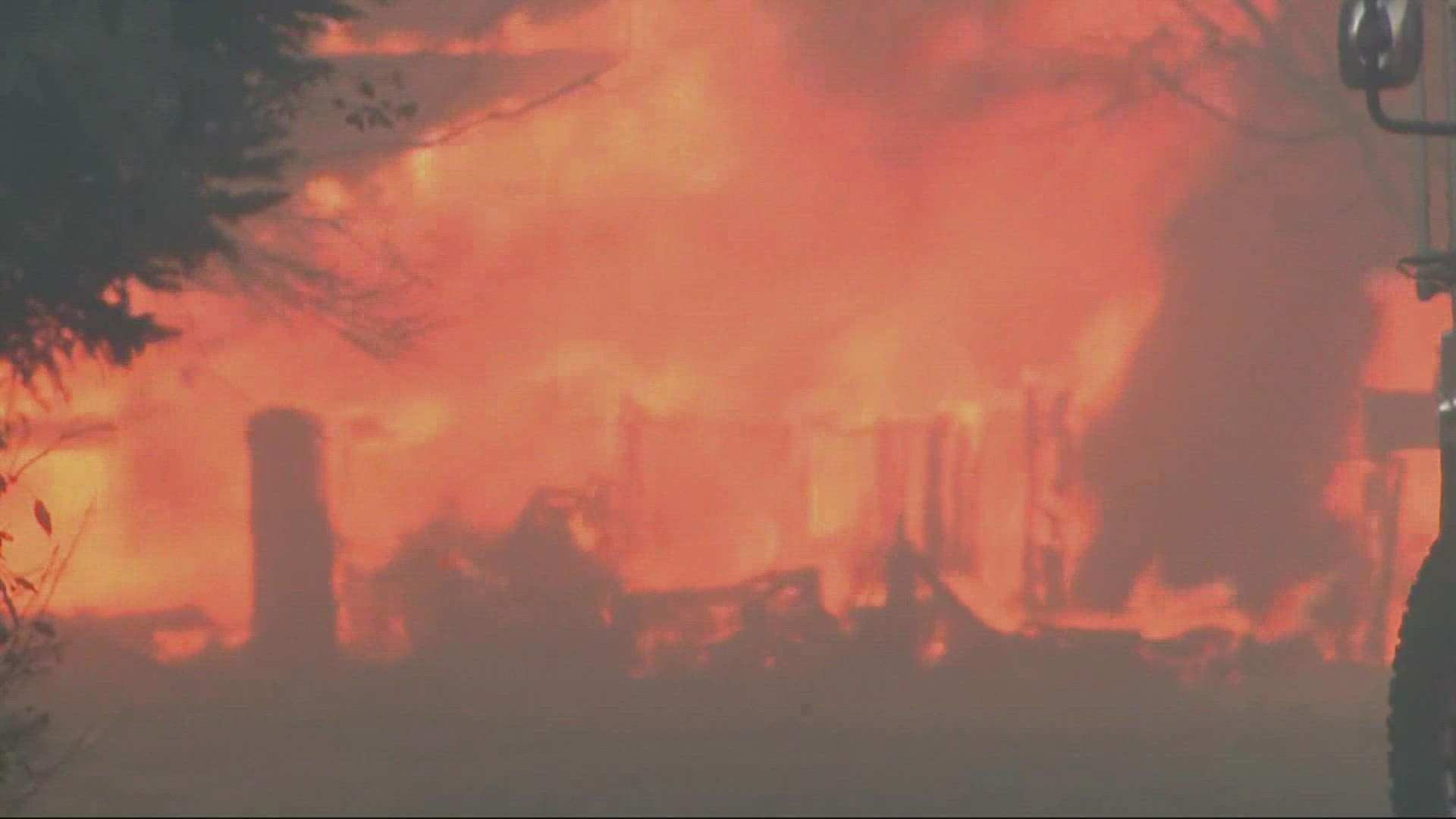PORTLAND, Ore. — Flames, driven by powerful winds, devoured nearly a thousand homes last week in two communities just northwest of Denver, Colorado. It took only a matter of hours for the fast-moving fire to rip through the Colorado towns of Louisville and Superior.
Driven by powerful winds, the flames devoured home after home within minutes. Firefighters said it was like nothing they'd ever seen before. The flames moved so quickly through the dried grass, crews couldn't keep up. It was the most destructive fire in Colorado state history, and it burned not in the heat of summer but the cold of winter.
A winter wildfire is a rare event, but many weather experts say as the climate warms and droughts become more common, it won't be all that rare in the future.
"Because of increases in temperature and because of increasing frequency and duration and severity of drought, there's a higher probability that those winds are going to come when the vegetation is is quite dry," said Erica Fleishman, the director of the Oregon Climate Change Research Institute at Oregon State University.
Fleishman said while there's no evidence one way or another wind patterns in the Pacific Northwest are changing, there is evidence we will experience longer and harsher droughts, which will dry out even winter vegetation.
"Drier conditions are making it more likely that a fire is going to spread rapidly and be difficult to contain," she said.
Fleishman pointed out that more and more of those fires are happening in populated areas.
"For example, some of the fires that occurred in Southern Oregon a couple of years ago in 2020, similarly, were not in an area that there were forest fires," Fleishman said. "Those were in largely urban areas."
Fleishman said it's critical communities and individuals prepare for more extreme weather and faster-moving fires.
"Having all that type of preparedness so that you can evacuate or you can sustain yourself safely when there's not a lot of public services for some period of time," Fleishman said.
People in the Pacific Northwest have been advised to prepare for earthquakes. In the same way, they should also prepare for wildfires. People should make sure they have an emergency kit that would enable them to live without power or running water for days. They should also have an evacuation plan.
Utilities are working on plans too. Fleishman said there have been discussions about shutting off the power when there are high winds, especially during dry periods. There have also been discussions about changes in building codes.
"It's my understanding that there's a lot that can be done with ventilation systems to make it less likely that that sparks will go through an HVAC [heating, ventilation and air conditioning] system and basically ignite the house from the inside," she said.
VIDEO PLAYLIST: KGW climate change stories

